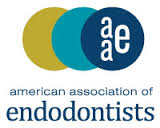“Drink your milk!”
How many times did you hear your parents and teachers admonish you to finish your milk for strong, healthy bones. Calcium and vitamin D, both essential for strong bones, are also great for your oral health. As with your bones, your teeth are more resilient and less prone to cracks and fractures when your diet includes sufficient vitamins and minerals. Dr. Todd Pizzi explains that teeth with strong enamel are less likely to become sensitive following teeth whitening in Shrewsbury, MA.
Did you know that women in particular are more likely to have bone problems as they grow older? By some estimates, a woman’s bones may lose up to one-fifth of their natural stores of calcium once they reach menopause. From a dental standpoint, this raises concerns about the health and density of your jawbone, which also has implications for tooth loss. If the jawbone weakens and becomes less dense, it can no longer hold your teeth in place.
What You Can Do
As always, regular checkups are advisable every six months, along with a professional teeth cleaning. During your checkup, your dentist will take x-rays of your mouth and jaw to look for signs of weakening. You’ll also be screened for oral cancer and gum disease. Gum disease, the most common culprit for adult tooth loss, is also a greater risk as you age.
Ensuring sufficient calcium intake is also important. If you are a woman older than 50, most doctors recommend between 1,000 and 1,200 mg calcium daily. You can check nutritional info on packaging to see which foods have added calcium. Milk also contains casein, which helps your teeth deflect the harmful effects of acid.
More Ways to Protect Teeth (and Bones)
If you don’t already take a supplement, you can choose natural foods that offer important vitamins and minerals – shoot for five servings of fruits and veggies daily. Vitamin C, vitamin K, potassium, and magnesium strengthen bones and teeth alike.
Your saliva has naturally antimicrobial properties that help prevent bacteria from causing oral infections. As you can imagine, anything that staunches the flow of saliva poses risks for your oral health, specifically the threat of tooth decay. Fluoride treatments and drinking fluoridated water are both excellent ways to reinforce tooth enamel and protect against cavities.
How healthy are your teeth? To learn more about preventing cavities, or to schedule an appointment with one of our dentists, contact us at (508) 842-8838. We welcome patients living in Shrewsbury, North and South Grafton, Milford, Worcester, and the surrounding communities.










